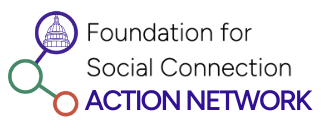I recently visited my 90-year-old grandfather, whom I lovingly call, “Papa.” He lives alone, in a two-story house, with a landline phone (he refuses to turn on his cell phone), and piles of organized chaos everywhere (for fear of forgetting where things are). He has family members visit a few days a week to check in and bring meals. He adores his iPad, scrolling on Facebook, and exchanging emails and photos with family. Papa is sharp as a tack and has stories to tell. However, as I walked around his house, I could feel the loneliness he experiences every day, poignant and palpable.
I cannot imagine how Papa must have felt in the first year of the pandemic. What I do know is that even with more and more people getting together in person, loneliness remains a chronic issue we cannot ignore.
When Humana started the “Far From Alone” campaign in May of 2020, in partnership with the Coalition, loneliness and social isolation were top of mind and finally had a needed spotlight. As a public health awareness campaign, “Far From Alone” raises awareness on loneliness and its health impacts and provides resources to help people feel more socially connected. Beginning with just a handful of campaign partner organizations, we now have over 30 organizations who have joined us—including the National Alliance on Mental Illness (NAMI), Meals on Wheels and Nextdoor, to name a few.
With the help of our partner organizations, our website and social media channels, our vision is for “Far From Alone” to help reduce the stigma in talking about loneliness and social isolation and to help people directly impacted by this issue. But our work is far from over. Loneliness is an ongoing issue that isn’t resolved with a website.
So, what are we doing to keep the momentum going on addressing loneliness, and what can you and your organization do to help?
1) Find ways to meet people where they are
We know that people like my grandfather are not always sitting around waiting for social connection to come to them or actively seeking it out. That’s why we are planning events to activate and promote “Far From Alone” on a local level, leveraging our Humana Neighborhood Centers and other places where people gather and meet. We are also leveraging our sales agents and others who already have direct contact with people and getting physicians in specific regions to ‘prescribe’ “Far From Alone” to patients who screen positive for loneliness (much like the 3/11 blog post on “social prescribing”).
2) Diversify your audience
Consider all the different groups potentially impacted by loneliness—caregivers, new moms, Veterans, children who are bullied and/or new to a city or school, people with dementia, people in rural areas and many others. We know that loneliness affects all ages, and it is a state of mind and feeling of being alone, even if someone has people interacting with them on a regular basis.
We are recruiting more and more organizations with varying audiences to join “Far From Alone” and help us make a difference to these specific groups.
3) Join us…and tell your story
If your organization is taking action to address loneliness and social isolation, please reach out to us and consider joining the “Far From Alone” campaign. There is no cost to join, as it is a public health awareness campaign, and the level of commitment is up to you (we can add you to our website “Resources” page, and you have the option to join Humana and over 30 other organizations in quarterly meetings to discuss campaign communications). We also encourage you to tell your story on how you’ve made a difference—positive stories of people you impacted, research on loneliness and social isolation and other newsworthy topics we can add to our “Stories” page.
And if you have not done so already, please become a member of the Coalition to End Social Isolation & Loneliness. Collaboration is crucial in addressing loneliness and social isolation.
We’ve come a long way in addressing loneliness the past two years, but in many ways, our work is just beginning. Let’s keep connecting people and help them feel #farfromalone.

